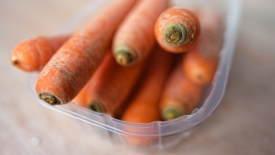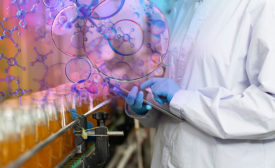Home » Keywords: » Intelligent packaging
Items Tagged with 'Intelligent packaging'
ARTICLES
Innovation at the Intersection of Food Packaging and Food Safety
Several food packaging options have emerged that directly contribute to producing a high-quality and safe food product
February 6, 2023
The Regulation of Active and Intelligent Food Packaging in the U.S. and the EU
Innovations in A&I food packaging, if allowed to advance, could significantly reduce food waste and improve food safety
April 19, 2022
Food Packaging
Clemson researchers working on packaging that detects food spoilage
Intelligent packaging uses sensors to detect when food begins to go bad
April 24, 2018
Never miss the latest news and trends driving the food safety industry
eNewsletter | Website | eMagazine
JOIN TODAY!Copyright ©2025. All Rights Reserved BNP Media.
Design, CMS, Hosting & Web Development :: ePublishing





